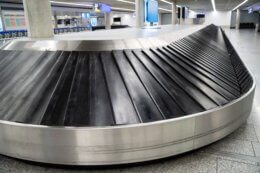
Recent research from Compare the Market has found that an alarming number of Australians have no money in their emergency fund for a rainy day. According to Compare the Market’s latest research, 1 in 10 people surveyed say they don’t have a cent in their savings to use in emergency situations.*
While it’s a worrying statistic as the cost-of-living crisis rages on, there’s actually been a 5% drop compared to the same time last year. Compare the Market’s Chris Ford said the drop could be a sign of the times.
“The tide could be slowly turning when it comes to the cost-of-living crisis, but a substantial number of Australians are still doing it tough,” Mr Ford said. “The fact that 10% of people we surveyed say they have nothing in their emergency fund tells us that they’re likely living pay cheque to pay cheque and could find themselves in serious financial trouble if they were to fall on hard times. The last thing we want to see is people relying on credit cards or loans with huge interest repayments attached to keep their heads above water.
“And it’s not just the daily cost to live that people need to factor into their budgets. Things like an emergency trip to the vet, a burst water pipe, a major appliance breaking down or a high insurance renewal letter are just some of the scenarios people need to consider.”
| Generation | % with zero in their emergency fund |
| Gen Z | 7.1% |
| Millennials | 8.20% |
| Gen X | 10.24% |
| Baby Boomers | 15.07% |
| Total? | 10.15% |
The data also shows that, on average, Australians have $20,086 saved in their emergency fund – a slight increase compared to the $19,998 people had on average at the same time last year. However, the median value in Australians’ emergency funds across all ages is $5,000.
The average also varies between the generations.
“Perhaps unsurprisingly, it’s our older members of the community who have more money stashed away compared to their younger counterparts,” Mr Ford said. “However, the Baby Boomer generation was more likely than any other generation to report having no emergency fund at all.
“Similarly, we know that on average, younger generations have the least amount saved, but are also the least likely to have nothing in their emergency fund.
“And if they’ve recently moved out of home, they’re likely dealing with rent increases and rising costs across the board. All in all, it’s a difficult time for many—regardless of their age.”
| Generation | Average savings |
| Gen Z | $7,804 |
| Millennials | $23,253 |
| Gen X | $16,761 |
| Baby Boomers | $25,424 |
| All generations | $20,086 |
*Survey of 1,010 Australian adults, conducted April 2024.
Mr Ford said there were some small things you could do to have a big impact on your savings
Look for a savings account with a higher interest rate
Where possible, see if you could be earning more interest by switching to a savings account with a more attractive interest rate. However, be mindful that there may be conditions you need to meet to earn the interest or that advertised interest rates may expire after a set period.
Don’t pay more than you need to for utilities and insurance
Next time that utility bill comes in or you’re hit with an insurance renewal, use it as an opportunity to see if you can pay less. If it’s been more than a few months since you’ve switched energy retailers, see if there’s a better deal available so you’re not paying more than you need to for gas and electricity. Also put any insurance renewals under the microscope and see if you can sniff out a better deal with another provider.
Refinance if you have a home loan
You may be able to find another home loan that offers a lower interest rate, cashback offers and access to other home loan features like an offset account, a redraw facility, the option to split your loan or the option to make additional repayments. Compare the Market recently launched a cashback offer that can be combined and “stacked” with other offers available through the more than 17 lenders on Compare the Market’s lending panel. It could mean certain borrowers are able to get two bites of the cash back pie.
Don’t let rewards go to waste
You may have access to a number of rewards and discounts and not even know it. Some insurance providers, energy retailers, takeaway outlets, telcos and supermarkets offer reward programs, where you can earn points to exchange for cheaper goods or access discounts on movie tickets, entertainment, dining experiences and more.
*Survey of 1,010 Australian adults, conducted April 2024.
For more information, please contact:
Phillip Portman | 0437 384 471 | [email protected]
Compare the Market is a comparison service that takes the hard work out of shopping around. We make it Simples for Australians to quickly and easily compare and buy insurance, energy, and home loans products from a range of providers. Our easy-to-use comparison tool helps you look for a range of products that may suit your needs and benefit your back pocket.








